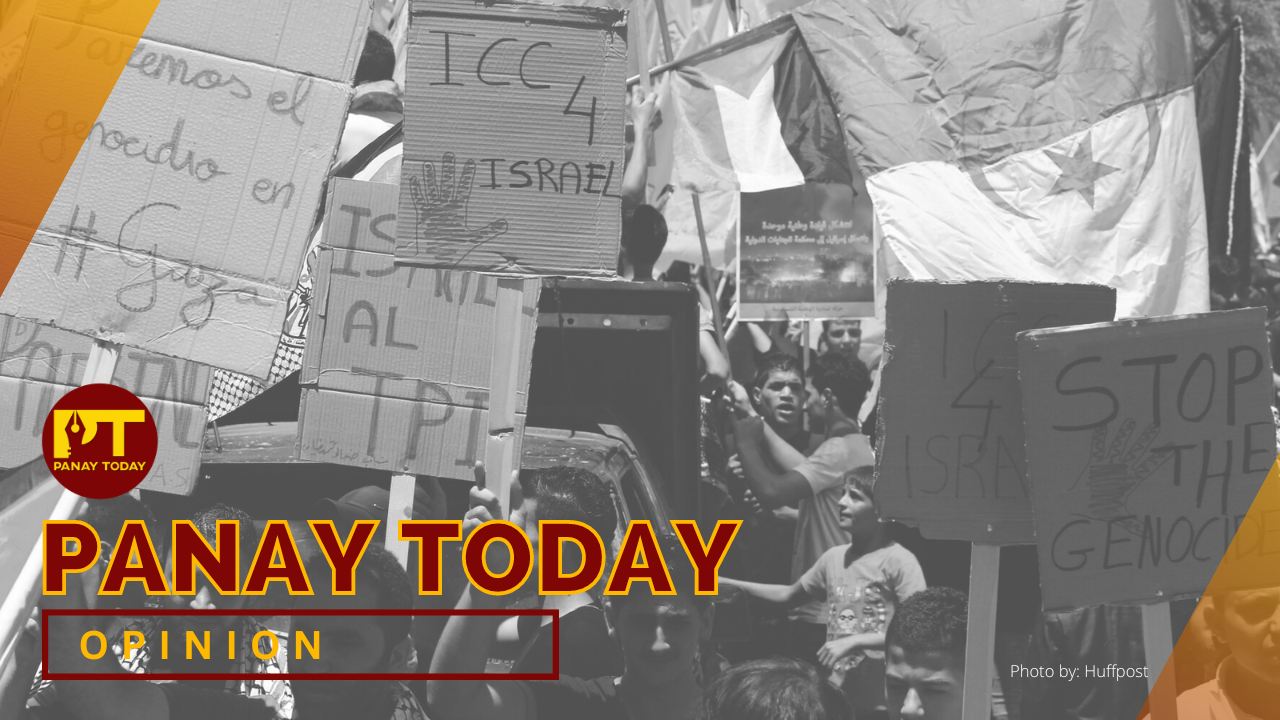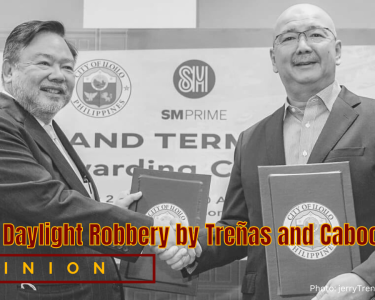OPINION | Marian Louise Sumbillo
The revolutionary Vladimir Lenin wasn’t wrong when he said there are “decades where nothing happens.” But early this January, decades of Palestinian history stood as witness for a week of preliminary hearings at the highest court in the world, the International Court of Justice. Palestinians in Gaza can only hope for “weeks where decades happen.”
In the latest count, the death toll in Gaza reached 25,000 in three months. This gut-wrenching number gave South Africa a strong leverage to accuse Israel of genocidal motivations at the ICJ. But while the scale of death, injury, and damages in Gaza is colossal in proportions, international law grounds the definition of genocide not on scale, but on intent. In other words, genocide is characterized by the motivation to cause death and destruction, regardless of their scope and severity.
The numbers can already speak of the immensity of violence, but it will require unequivocal evidence to prove the plausibility of genocide. How the court interprets the definition of genocide in view of the crisis in Gaza is central to the South African case.
Under Article 2 of the United Nations Genocide Convention, genocide is defined as “acts committed with intent to destroy, in whole or in part, a national, ethnical, racial or religious group” which includes (a) killing its members, (b) causing serious bodily or mental harm to the members, (c) deliberately inflicting conditions that would bring physical destruction to the groups, (d) imposing measures to prevent births, and (e) forcibly transferring children to another group.
Moreover, the ICJ not only prosecutes states who committed genocide, but those who attempted, or made a direct public incitement to commit genocide, regardless of its success.
During the preliminary hearings, South Africa argued that Israel ticks several requisites for genocide, citing the killings and the serious harm inflicted on Palestinians, and the deliberate creation of life conditions that led to their demise. For South Africa, this pattern of acts betrays a genocidal intent, which is further aggravated by the incendiary statements of key Israeli public figures supporting the violence.
To sidestep South Africa’s allegations, the Israeli legal team argued that wiping off neighborhoods and family lineages in Gaza was never part of a systematic plan to annihilate Palestinians. Invoking its inherent right to self-defense under Article 51 of the U.N. Charter, Israel claimed that these are but the unfortunate consequences incidental to their campaign targeting the militant group Hamas. To further deflect claims of genocide, Israel presented the court evidence that it has made efforts to deliver humanitarian aid in Gaza and mitigate harm among civilians.
A look at jurisprudence shows that the court has set a high standard of proof for establishing genocide. To meet the threshold for genocide, the pattern of acts must only point to genocidal intent as the only intention.
With legal deftness, Israel’s evidence managed to dodge the allegations presented by South Africa. For if the thousands of deaths are presented as a consequence of Israel’s military campaign against Hamas, then the IDF operations can be explained by an intention other than a deliberate attempt at genocide. Israel’s defense casts doubt on South Africa’s claim that the killings were solely driven by genocidal plans.
If the court decides to proceed with the trial, it will take years to determine whether genocide has been committed. For now, South Africa could at best hope to be granted provisional measures that seek immediate suspension of Israeli military operations in Gaza. Such a request will probably take weeks of deliberation.
Establishing genocide within a legal framework could be an uphill battle for South Africa. Yet, it doesn’t take a legal expert to see the magnitude of death and destruction in Gaza. The crisis is too real and too urgent to have its existence denied. As the world watches, the international court is faced with a challenge to make room for morality without losing sight of legality./PT



